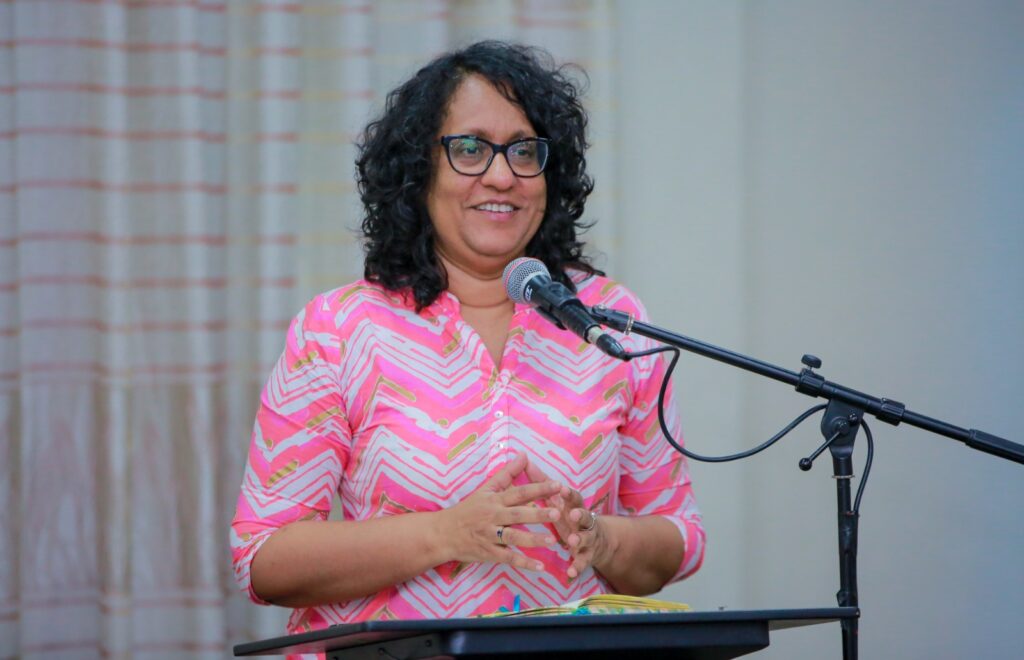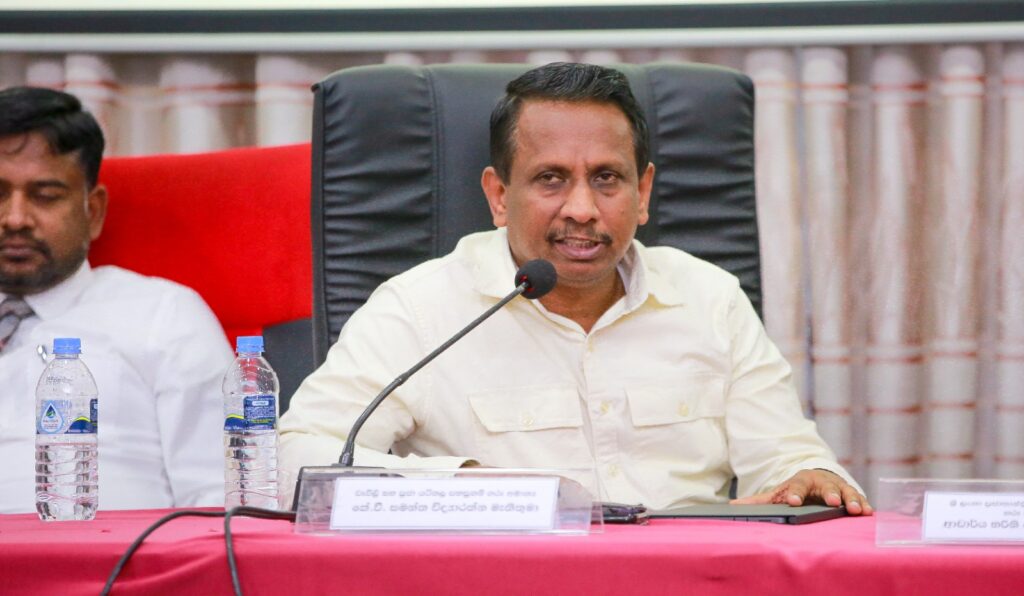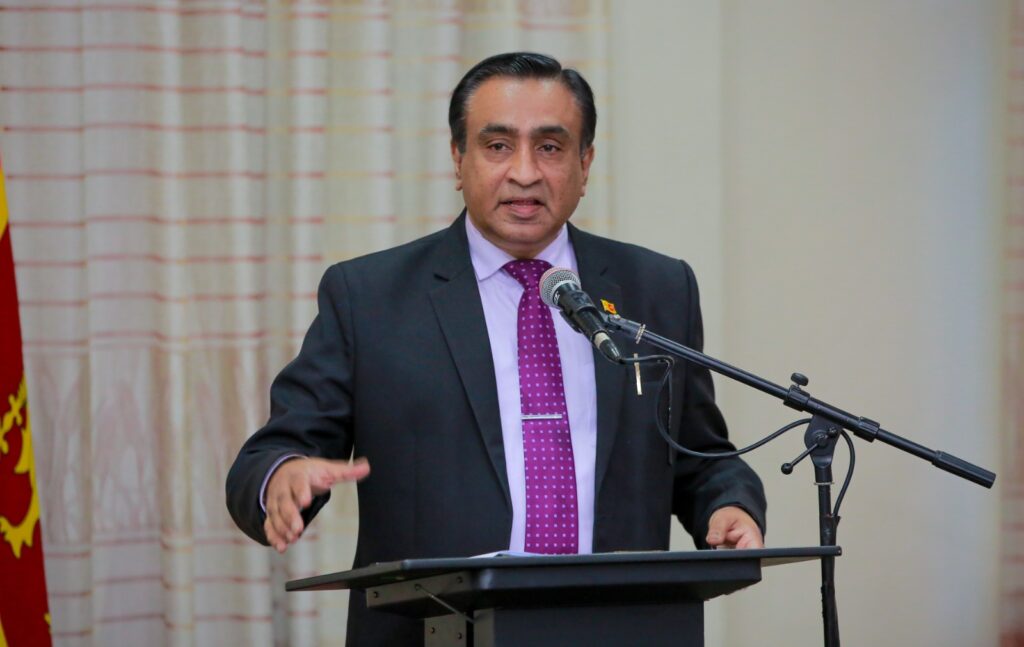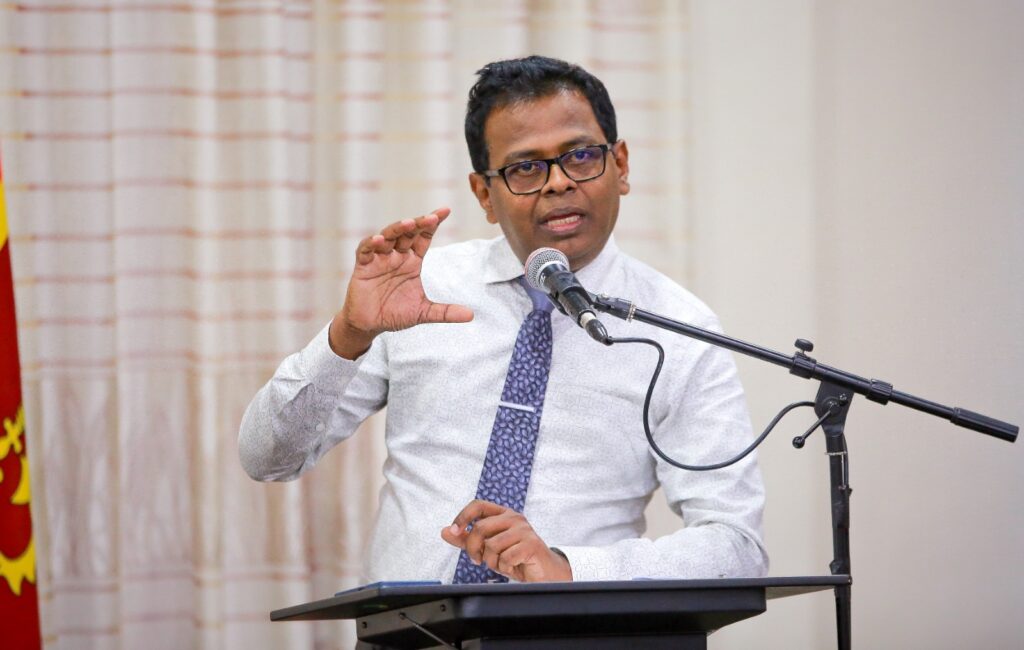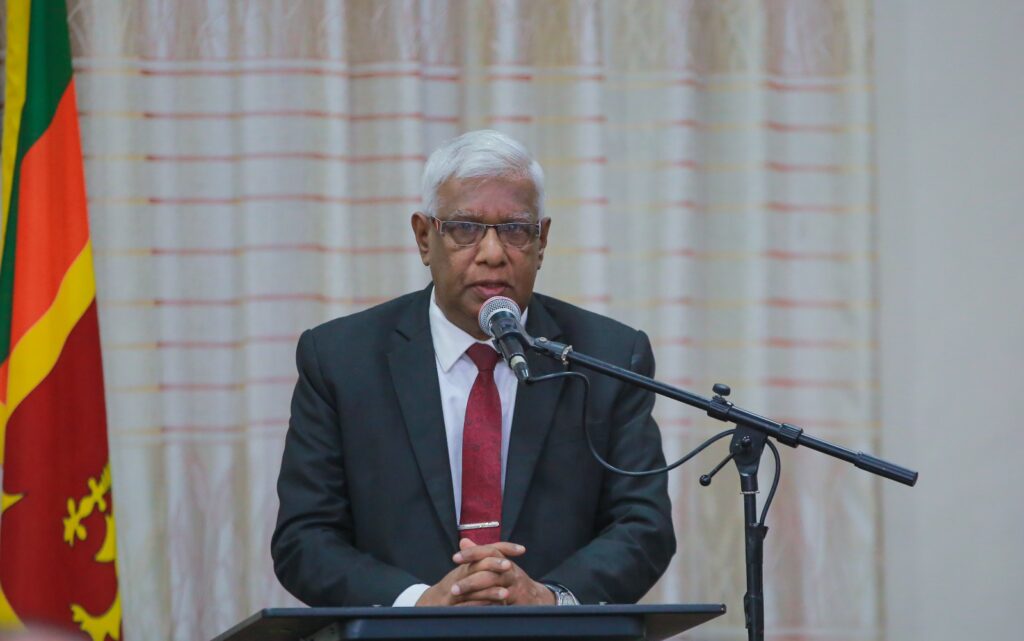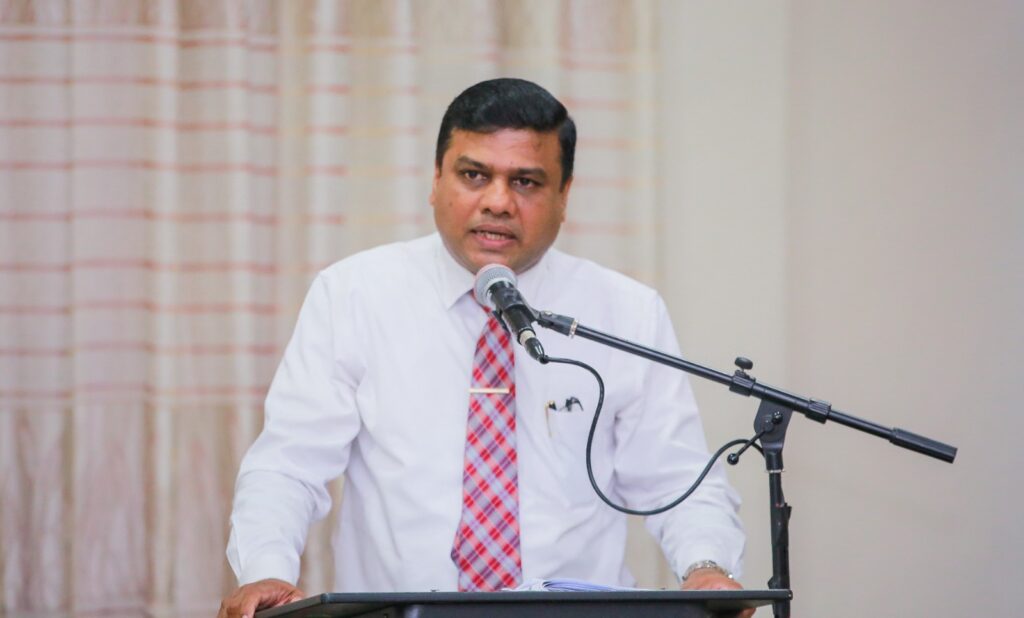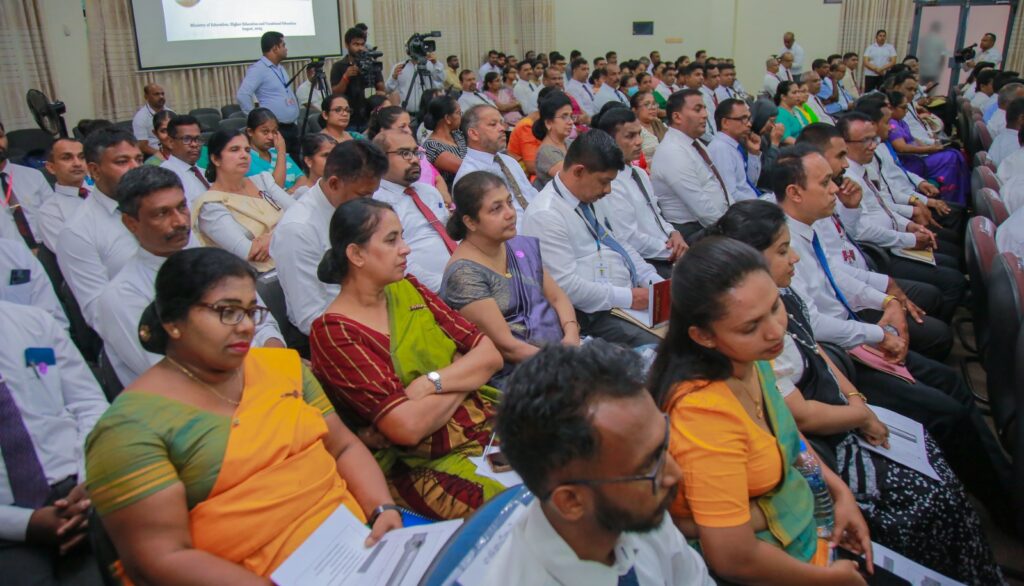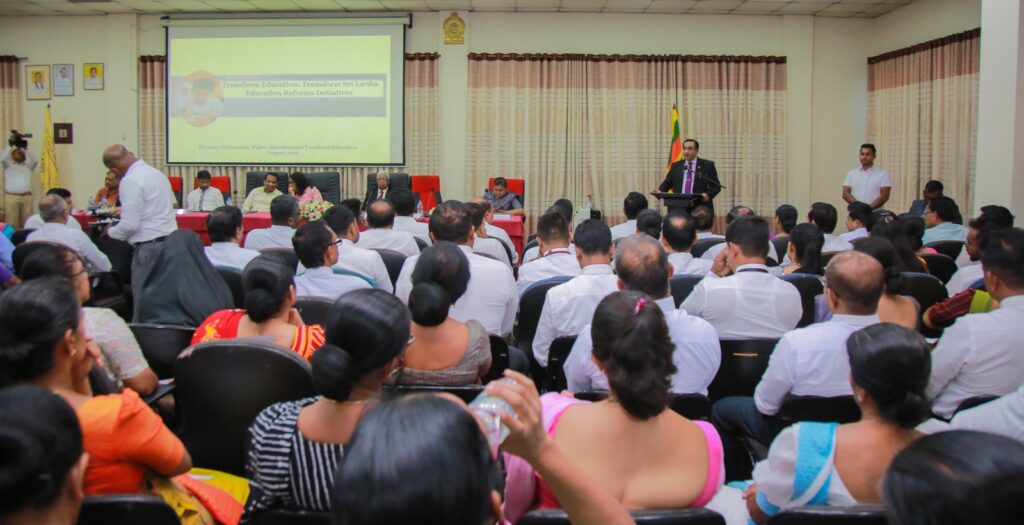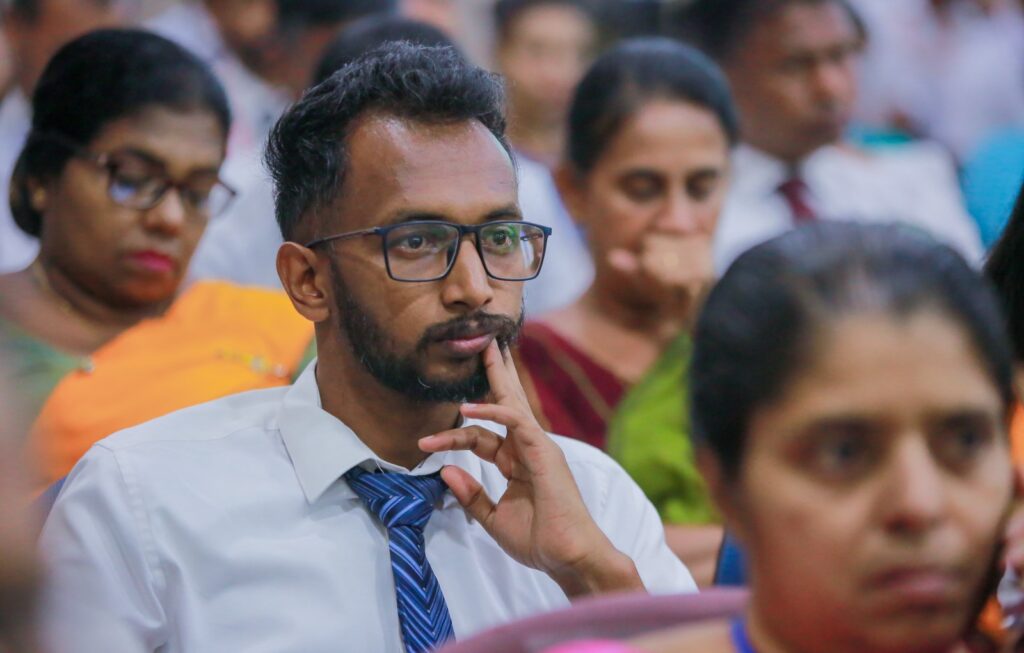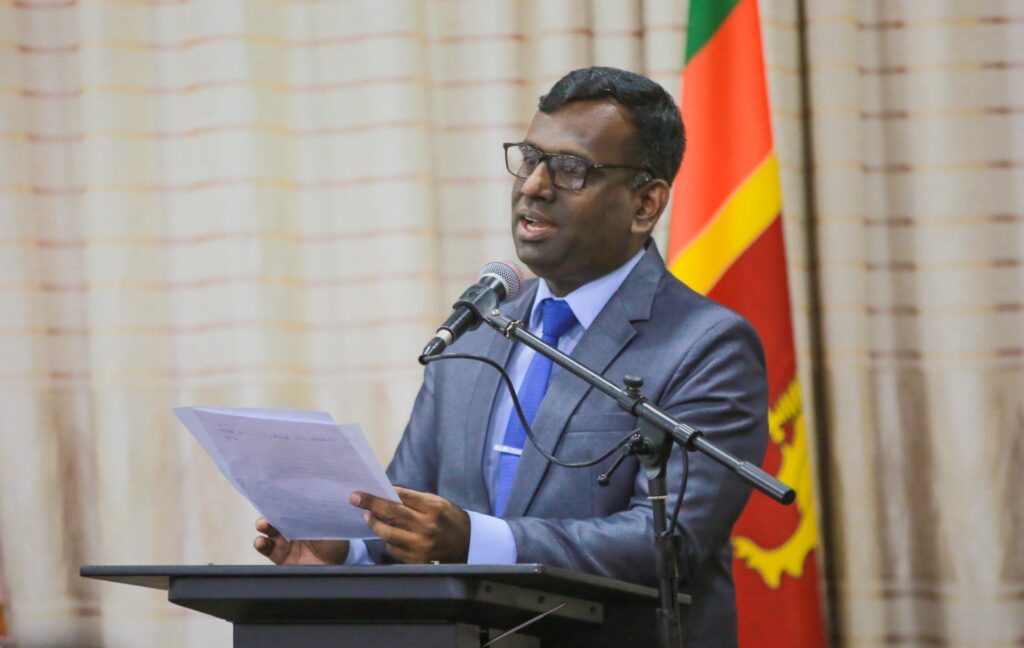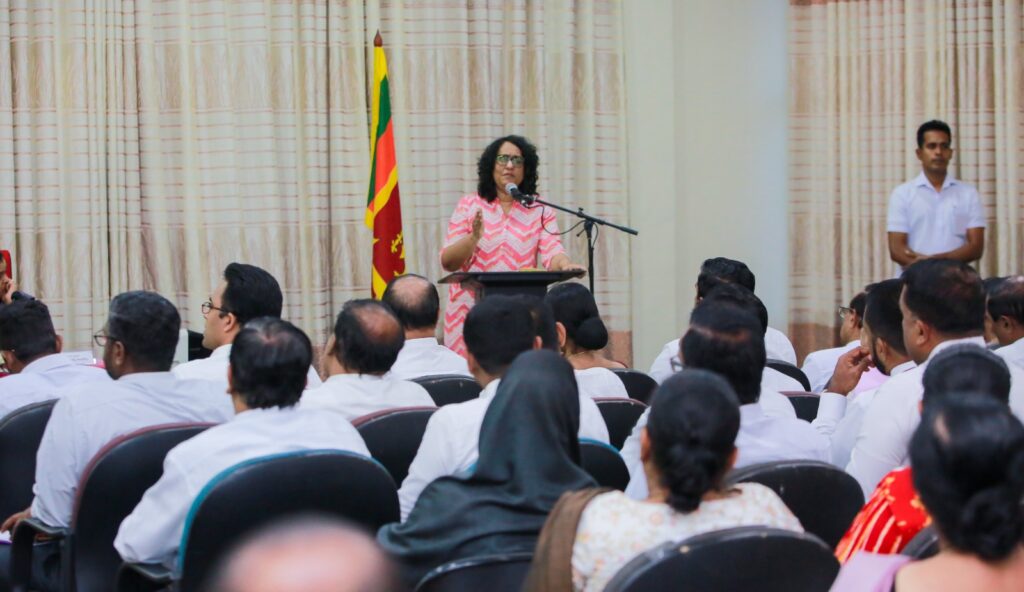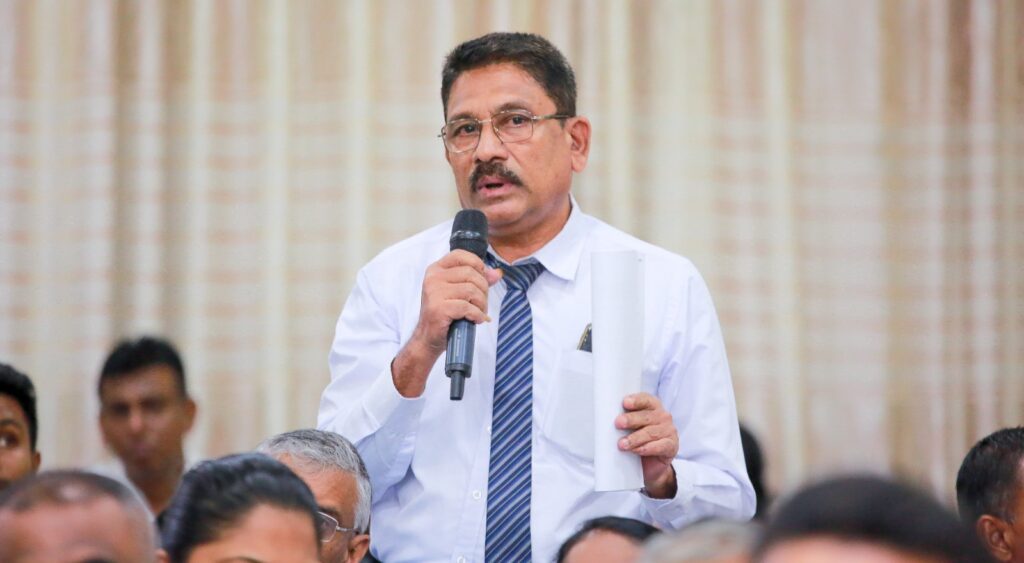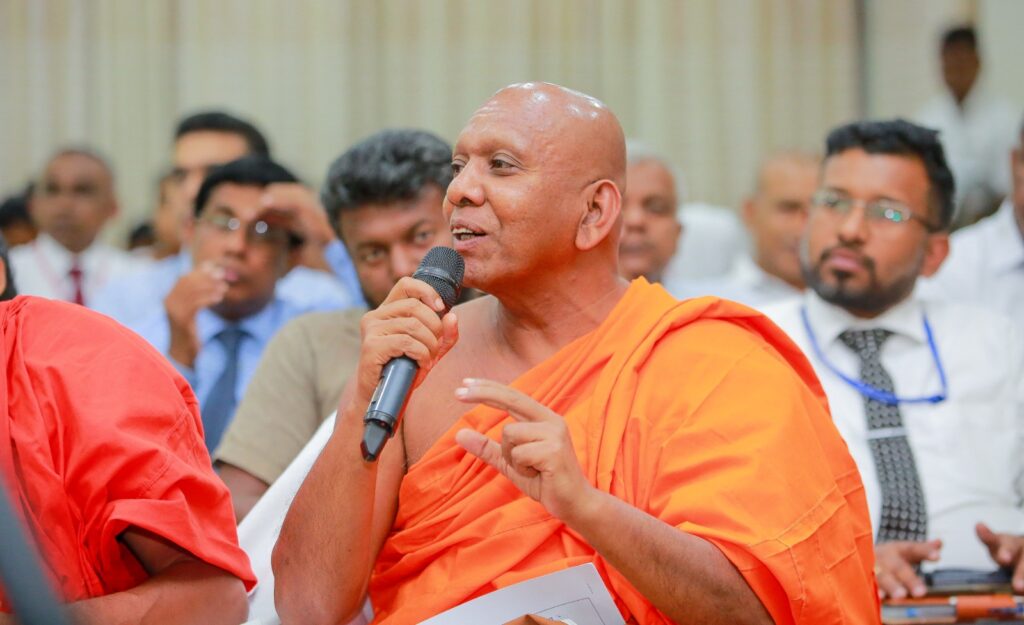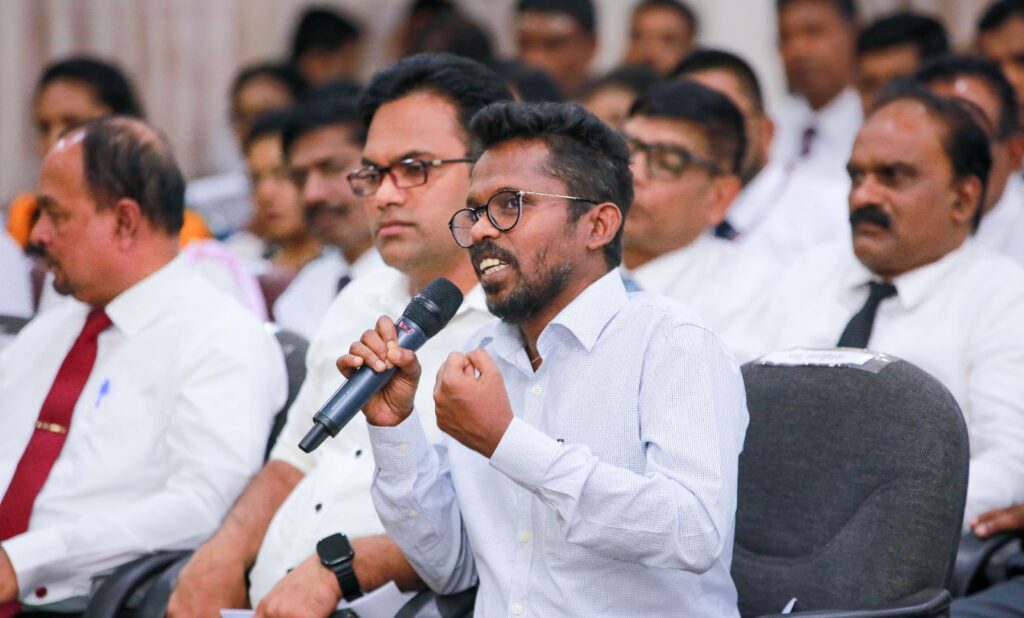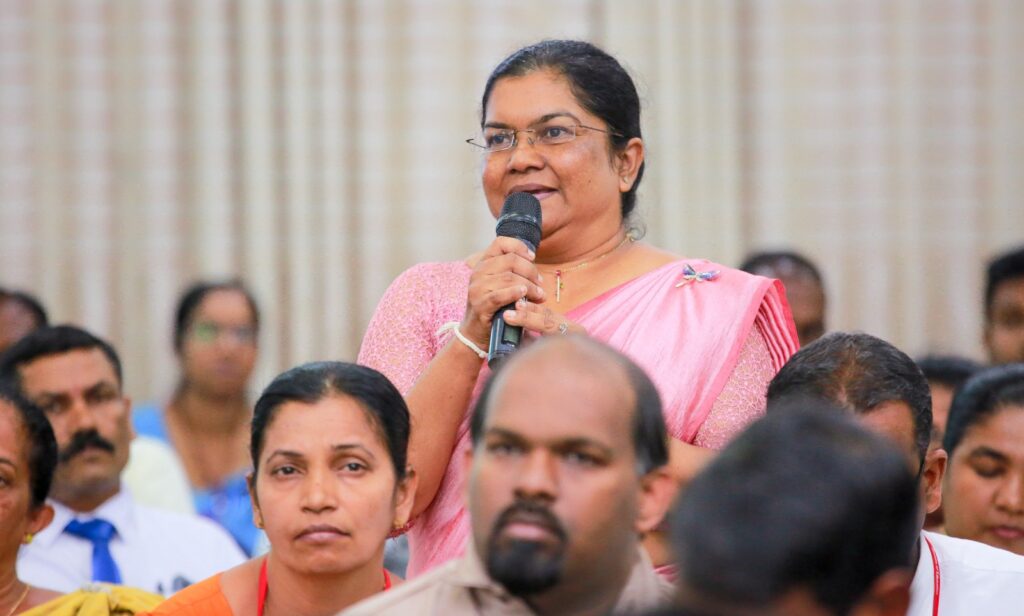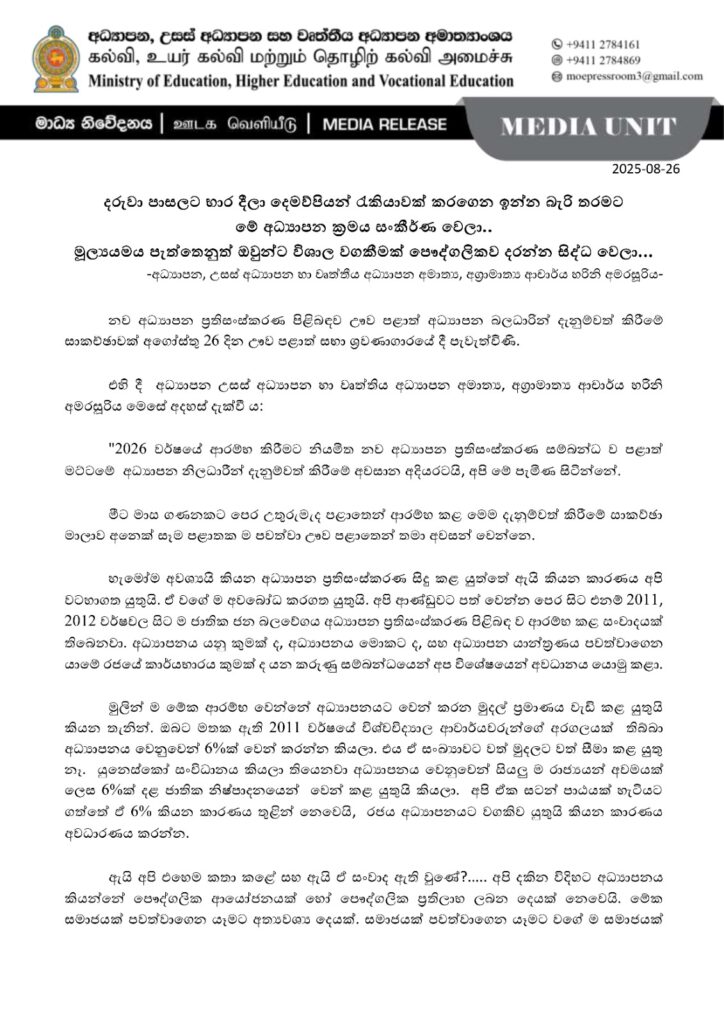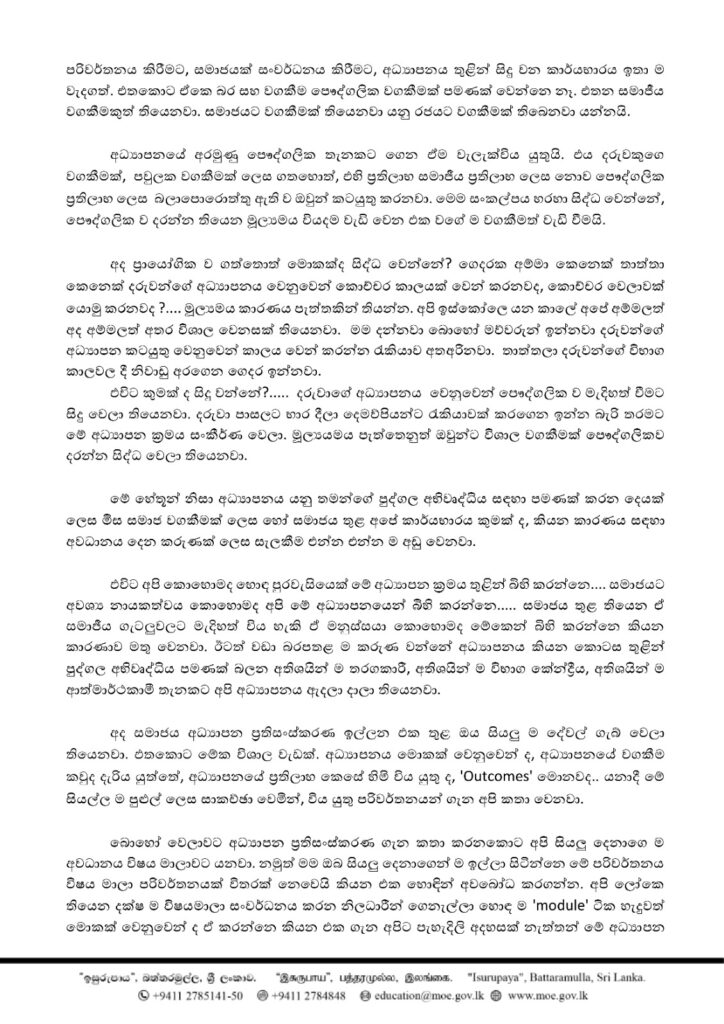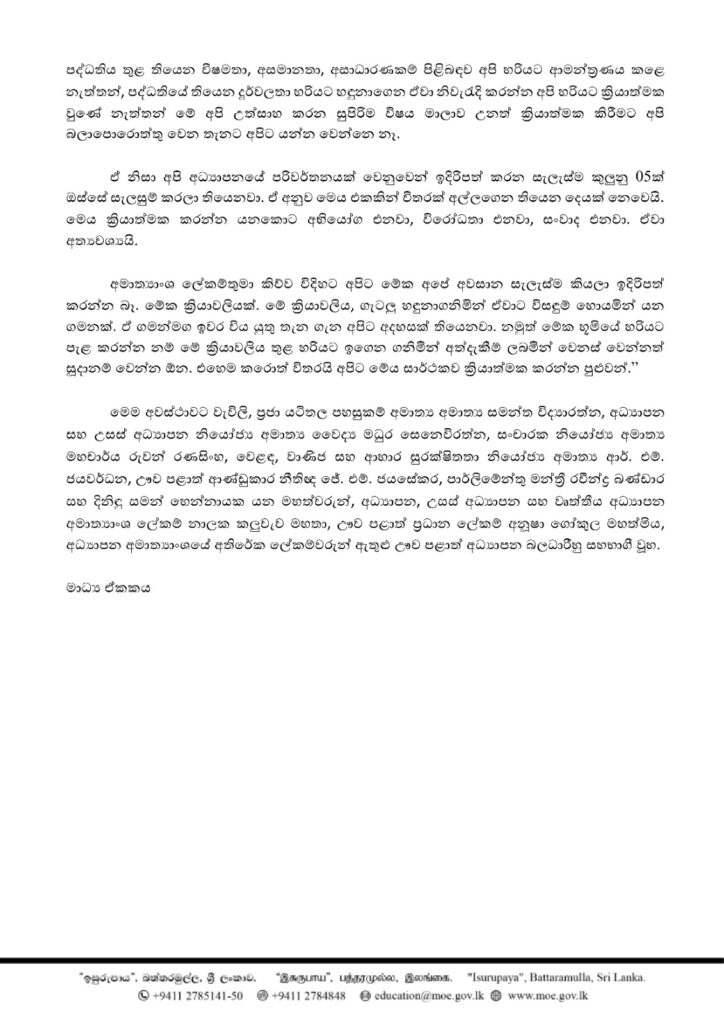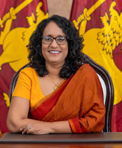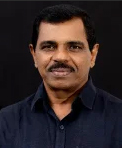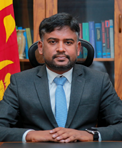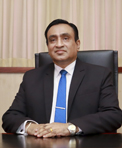“It has happened to them to bear a huge responsibility personally in monetary sphere also…”
– The Prime Minister and the Minister of Education, Higher Education and Vocational Education Dr. Harini Amarasuriya.
A discussion was held on 26th of August at the auditorium of Uva Provincial Council to make the educational authorities in the Uva Province aware of the new education reforms.
At that occasion The Prime Minister and the Minister of Education, Higher Education and Vocational Education Dr. Harini Amarasuriya expressed these ideas.
“Now we have come to the last stage of sensitizing the provincial level education officers about the new education reforms scheduled to be commenced in 2026.
These series of discussions for sensitizing were started from the North Central Province about several months ago and after finishing in all other provinces, it will end in Uva Province.
We have to understand the fact that why should the education reforms requested by all, be done. Likewise, it must be understood that there is a dialogue on educational reforms commenced by Jathika Jana Balawegaya before we come to power that is from the years 2011 and 2012. We specially drew our attention towards the matters such as what is education, what is education for and what is the duty of the government in maintaining the education mechanism.
This was first started from the point of saying that the amount allocated for education must be increased. As you can remember there was a struggle of the university teachers in 2011 asking to allocate 6% for education. The UNESCO Organization has said that all the states must allocate at least 6% from the gross national product. We took it as a slogan not just from the idea of 6%, but to highlight the fact that the government must be responsible for education.
Why did we speak like that and why did such dialogues come up? As we look at it, the education is not a private investment or a privately profit earning thing. This is an essential thing to maintain a society. The role of education is very important to transform a society and also to develop a society just as maintaining it. Therefore, the burden and the responsibility of it does not become only a personal duty. There is a social responsibility also. Duty of a society means the government also has a responsibility.
Bringing the aims of education to a private point must be prevented. If it is taken as a duty of a child and a responsibility of a family, they tend to take the benefits of it as personal benefits not taking as social benefits. What happens through this concept is increasing the personal expenditure as well as increasing the responsibility.
Practically what is happening today? How much time a mother and a father in a house allocate for the education of their children? How many hours do they reserve? Keep aside the financial matter. There is a huge gap between the mothers of our school time and the present day mothers. I know a number of mothers give up their employment for the purpose of dedicating their time for their children’s education. Fathers take leave ant stay at home during the examinations of their children.
Then what happens? It has happened to interfere personally with the education of the child. This system of education has become so complexed to a situation where the parents cannot do their jobs peacefully after assigning their children to the school. In the financial side also, they have to bear a great responsibility.
Because of these reasons, the education has become a thing that is done only for personal advancement but the considering education as a social responsibility or a matter directing us to understand our duty within the society, is gradually decreasing.
Then how can we create a better citizen through this education system? How do we generate the leadership required for the society through this education? Then the matter arises how we can create the person who can interfere with the social issues. The most crucial fact is that we have drawn the education to a most self-centered, highly competitive and extremely exam centered place where only the personal gains are considered.
All those things are impregnated within the social demand for educational reforms today. So, this is an enormous task. We are talking about the would-be transformation while discussing broadly the matters such as what education is for, who must bear the responsibility of education, how should the benefits of education be achieved and what are the outcomes.
Most of the time when we talk about educational reforms our attention is drawn to the curriculum. But I request from all of you to understand well that this transformation is not just a change in curriculum.
Even if we brought the brightest curriculum developers in the world and make the best modules, we would not be able to reach our expected target to implement the expected best curriculum if we do not understand correctly the weak points in the system and take actions to rectify them, if we do not address properly the disparities, inequalities and injustices prevailing in this system of education and also if we do not have a clear understanding about what all these are done for.
Therefore, the plan we are presenting for a transformation in education has been designed through 05 pillars. Accordingly, this is not a thing holding only by one end. When we are going to implement this, the challenges, protests and dialogues come. Those are essential.
Just as the Secretary of Education pointed out, we cannot do this as our final plan. This is a process, a journey proceeding with identification of issues and finding solutions for them. We have an idea where that journey must end. But if this is to be planted in the ground firmly, we must be ready to learn properly within this process and change with the experiences. Only if we do in that way, we would be able to implement this successfully.”
The Minister of Plantation and Community Infrastructure Facilities Samantha Vidyarathna, the Deputy Minister of Education and Higher education Dr. Madhura Senevirathna, the Deputy Minister of Tourism Professor Ruwan Ranasinghe, the Deputy Minister of Trade, Commerce and Food Security R.M. Jayawardana, the Governor of Uva Province Attorney at Law J.M. Jayasekara, Member of Parliament Raweendra Bandara and Dinindu Saman Hennayaka, the Secretary of the Ministry of Education, Higher Education and Vocational Education Nalaka Kaluwewa, the Chief Secretary of Uva Province Mrs. Anusha Gokula, the Additional Secretaries of the Ministry of education and the educational authorities of Uva Province had joined in this occasion.
Media Unit
